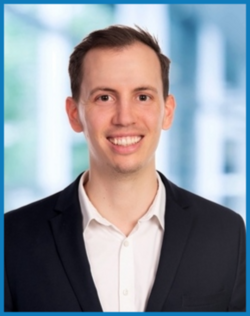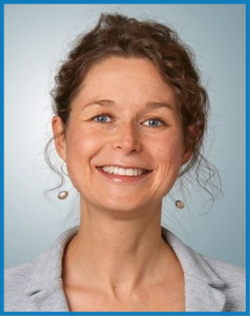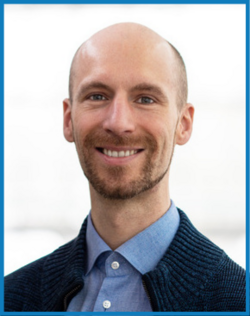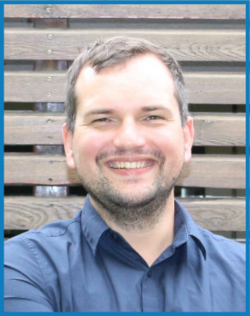Career Session Speakers
Prof. Dr. Franziska Farber
Professor at the Institute for Hygiene and Microbiology, University of Würzburg
Franziska Faber studied biology at Martin Luther University in Halle/Saale, Germany, where her academic interest in microbiology first took shape. She pursued her doctoral research at the Robert Koch Institute in Wernigerode, focusing on enteric bacterial infections. After her PhD, she moved to the University of California, Davis, where she investigated how nutrient shifts in the gut post-antibiotic treatment enable Salmonella enterica to thrive.
In 2018, she returned to Germany to establish her own research group at the Center for Infectious Disease Research (ZINF) in Würzburg as a Young Investigator, where she shifted her focus to the largely unexplored RNA biology of the gut pathogen Clostridioides difficile. In 2021 she was then appointed as a Junior Professor at the Institute of Molecular Infection Biology (IMIB), in association with the Helmholtz Institute for RNA-based Infection Research (HIRI). She is currently holding a W2 professorship at the Institute for Hygiene and Microbiology at Julius-Maximilians-Universität (JMU) Würzburg.
Dr. Stephan Altmann
Scientific coordinator at the University Hospital Bonn
Dr. Stephan Altmann began his academic journey studying Biochemistry at the University of Leipzig. He later continued his studies at the University of Würzburg, where he joined the Department of Orthopedics and Musculoskeletal Tissue Regeneration. His doctoral research focused on metabolic glycoengineering, a technique used to modify cell surfaces by introducing target molecules to surface proteins. Using telomerase-immortalized human mesenchymal stromal cells as a model, Dr. Altmann successfully demonstrated transient cell surface modifications, providing a foundation for exploring glycosylation processes in skeletal precursors.
He is currently working as a scientific coordinator at the University of Bonn, where he is responsible for managing research activities, supporting scientific collaborations, and ensuring that research projects are executed with a high level of scientific precision.

Dr. Tobias Heib
Scientist - Pilot Plant for Recombinant Product Development - CSL Behring Innovation GmbH
Tobias Heib focused on recombinant vectors during his bachelor and master thesis. He received his PhD in biomedicine in the group of Bernhard Nieswandt at the Institute of Experimental Biomedicine at the RVZ in Würzburg, where he focused on the role of Rho GTPases in megakaryopoiesis and thrombopoiesis. After his PhD, he joined R-Pharm Germany in Illertissen as a management trainee, where he worked first as a manager and later as a team leader in Technology Transfer Biotech, responsible for the execution of technology transfer for new vaccine or antibody manufacturing processes from in-house development center or customers to R-Pharm Germany's biotech facility for small or large scale GMP production. In 2023 Tobias joined CSL Behring in Marburg as a scientist in the pilot plant for recombinant product development.
Dr. Martin Schröter
Start-up founder & CEO - SURFACtoBio Tech
Martin Schröter is a trained chemist with Bachelor's and Master's degrees from the University of Heidelberg. He completed his PhD in biophysical chemistry in the group of Joachim Spatz at the Max Planck Institute for Medical Research. By employing newly synthesized surfactants, droplet-based microfluidics, and synthetic cell assembly followed by biofunctionalization, he developed an extensive network of synthetic cells and hybrid cellular systems, paving the way for artificial tissue generation. After his PhD, Martin continued at MPI as a postdoctoral fellow to further develop his new technologies. Motivated to make these innovative methods widely applicable, he co-founded SURFACtoBio Tech in 2024, where he has served as CEO since then. For Martin his mission is clear: to leverage his expertise in droplet-based microfluidics to improve accessibility for researchers in various fields and push the limits for innovation.








